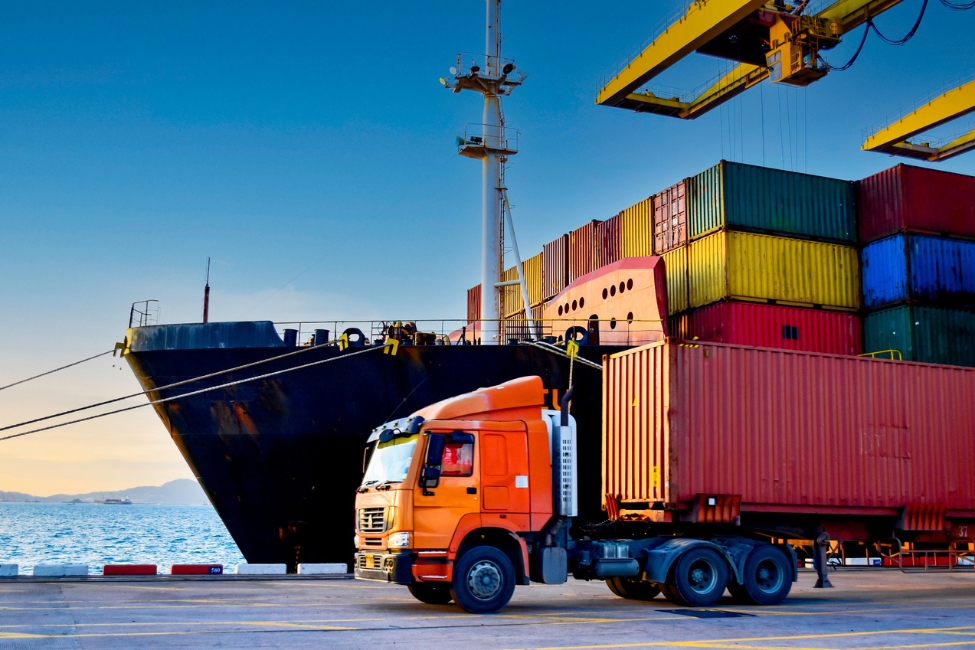FAU Report: Supply Chain Expands to Highest Reading as Tariffs Loom

The logistics industry saw record expansion compared to the past two years, but uncertainties around tariffs and potential economic conditions pose challenges for the supply chain in the coming months, according to researchers at Florida Atlantic University and four other schools.
The logistics industry saw record expansion compared to the past two years, but uncertainties around tariffs and potential economic conditions pose challenges for the supply chain in the coming months, according to researchers at Florida Atlantic University and four other schools.
The January Logistics Manager’s Index (LMI) reads in at 62.0, up (+4.7) from the December 2024 reading. A score above 50 indicates that the logistics industry is expanding, while a score below 50 indicates that the industry is shrinking. This is the fastest reading of expansion in the overall index since June 2022. Five out the eight metrics used to calculate the score saw an increase.
“The incoming U.S. presidential administration has been vocal around what changes they expect to and subsequently have made to the U.S. global trade relationship, and as a result supply chains are required to adopt a nimble and agile footing,” said Steven Carnovale, Ph.D., an associate professor of supply chain management in FAU’s information technology and operations management department.
The LMI, a survey of director-level and above supply chain executives, measures the expansion or contraction of the logistics industry using eight unique components: inventory levels, inventory costs, warehousing capacity, warehousing utilization, warehousing prices, transportation capacity, transportation utilization, and transportation prices. Along with FAU, researchers at Arizona State University, Colorado State University, Rutgers University, and the University of Nevada at Reno calculated the LMI using a diffusion index.
Steady economic growth in the United States over the past six months helped bolster January’s score; increased inventory levels also helped as firm built up their inventory levels to head off any potential added costs due to potential tariffs. Warehousing capacity, on the other hand, dropped to 51.7, signaling that it is near contraction. The drop in capacity led to increased warehousing prices at 73.1, the highest levels since February 2023.
“The decrease in capacity, and subsequent cost increase, is likely the result of two forces intersecting. First, firms knowing that tariffs were looming likely stockpiled goods that were likely to be exposed to the tariffs prior to their announcement/finalization, and second the aftereffects of the holiday season push/return cycle,” Carnovale said. “As the months move forward, watching the split between where and how the capacity/pricing dynamics are shifting between upstream and downstream may serve as a harbinger of things to come."
-FAU-
Latest Research
- Researchers Identify Most Efficient Reinforced Concrete Beam DesignAn FAU engineering professor and international collaborators from Metallurgical Institute in Ukraine and Ariel University in Israel, have identified the most efficient design for reinforced concrete beams.
- FAU Receives NIH Grant to Investigate Amphetamine AddictionWith this grant, the FAU research team will use tiny roundworms to study how amphetamines disrupt dopamine, aiming to uncover addiction mechanisms and train the next generation of neuroscience researchers.
- New Study Links NP Autonomy to Provider Shortage ReliefA new study from researchers at FAU highlights how temporary expansions in nurse practitioner (NP) autonomy during the COVID-19 pandemic helped alleviate shortages.
- FAU's Cheryl A. Krause-Parello, Ph.D., Awarded Fulbright U.S. ScholarCheryl A. Krause-Parello, Ph.D., received a Fulbright U.S. Scholar award to study Germany's research and education systems in the academic year 2025-26, focusing on funding and university support for research.
- BEPI Poll: Hispanic Economic Optimism FallsHispanic consumers are spending less as optimism about their economic outlook dwindles amid inflation and economic uncertainty, according to a poll from the Business & Economics Polling Initiative at FAU.
- FAU Receives $1M Grant to Study Gulf's Mesophotic Coral HabitatsFAU Harbor Branch researchers and collaborators will study how ocean currents and river nutrients affect deep coral ecosystems on the West Florida Shelf - one of the gulf's largest and least-studied habitats.






